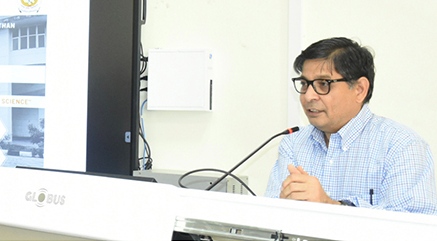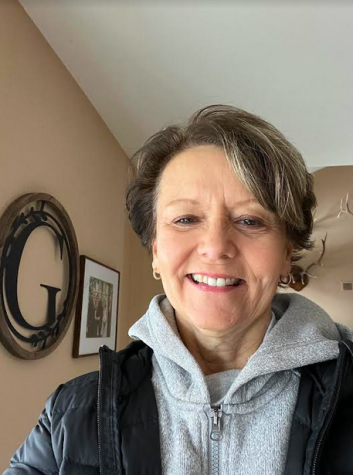OU professor travels to India, shares data science expertise through Fulbright Specialist program

Dr. Ravindra Khattree, a professor of applied statistics at OU and co-director of the Center for Data Science and Big Data Analytics (CDaS), visited the Central University of Rajasthan (CURaj) in India for two weeks this past summer to share his expertise in data science and analytics through the Fulbright Specialist program.
Dr. Ravindra Khattree, a professor of applied statistics at OU and co-director of the Center for Data Science and Big Data Analytics (CDaS), visited the Central University of Rajasthan (CURaj) in India for two weeks this past summer to share his expertise in data science and analytics through the Fulbright Specialist program.
The Fulbright Specialist program – or in this case, the Nehru-Fulbright Specialist program, since it pertains to India – is a program sponsored by the Department of State to encourage the collaboration between U.S. universities and other countries around the world.
His presentation discussed data visualization, data reduction, use of data to classify objects or individuals to understand the data, modeling the huge amounts of data and determining causal relationships. In addition, he had several separate meeting sessions with groups of undergraduate students, graduate students, faculty members and the vice chancellor of the university. He also gave a general university-wide colloquium for the non-technical audience, which was presided by the dean of the college of science.
“The CURaj is a relatively newer university in India with an academic emphasis on STEM fields,” Khattree said. “They wanted their students to be introduced to some cutting-edge data science work, and thus thought of submitting a proposal to the Fulbright Foundation.”
The project was initially funded in 2019 for a proposed visit in 2020. However, due to the COVID-19 pandemic and subsequent travel bans, Khattree’s visit was postponed for two years. It finally happened in the summer of 2022.
“I certainly was very interested in this visit, since India is fast becoming a key participant in technological research and applications, and I wanted to see what the new developments are in data science education taking place at their end,” he said.
As the co-director of the CDaS, Khattree, along with other founding members of the center, strives to provide a common platform for OU faculty and researchers whose research involves data, encouraging quantitative research and awareness which, as a result, will be incorporated into graduate and undergraduate teaching at OU.
“We, the members of the CDaS, strongly believe that — whether one likes it or not — in [the] future, data and quantitative methods are going to be an integral part of doing any scientific research or of making business decisions,” he said. “Thus, in order to avoid being obsolete in the current competitive job market, we must update our teaching approaches and course contents and train our students in ways which make them competitive and desirable in the job market. As a co-director of CDaS, I feel that this is my — as well as our — biggest responsibility and challenge.”
“I have been here at OU for 31 years and my most important objective during this long period has been to promote data-centric quantitative literacy and educational training,” Khattree continued. “It has been quite gratifying for me to see my students – graduate as well as undergraduate – succeed and apply this knowledge in their careers. I consider that as the single most important and most interesting aspect of my career here.”
Khattree is also a member of the Center for Biomedical Research. For his own research, he focuses on the aspects pertaining to how to choose a particular approach for the data analysis of a specific type of data, what to compute and do that using what algorithm rather than on efficient programming and coding of that algorithm.
For the future, he hopes to continue promoting and introducing cutting-edge data science education as it is currently evolving, learn the new techniques and methodologies and train the students in those methods.
Lastly, he shared his opinions, convictions and evaluations about data science with the OU community – students, faculty and administration.
“To students, I have to emphasize or rather cajole them to explore data science and statistics as a career. If you have quantitative interests, then there could not be a better and more promising education and training than this.
“Further, there could not be a better time to dive into these fields — the job market needs you! And it is going to be a very satisfying career as well. Even when you are not considering data science as a future career, please consider taking a few courses in statistics and data science.
“As a professor of statistics, I would also like to see more quantitative and data-centric emphases in courses offered at, as well as the research that comes out of OU. We all should work towards making OU education competitive and relevant to today’s market environment and an important step towards that aim is to refine, redesign and introduce the STEM courses where emphasis is on data and its related science.”







